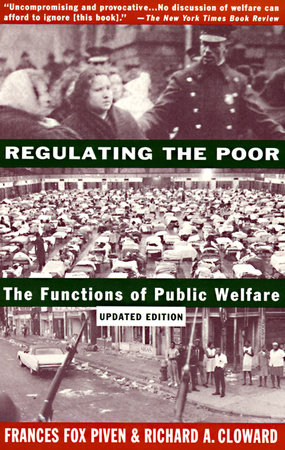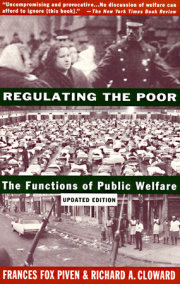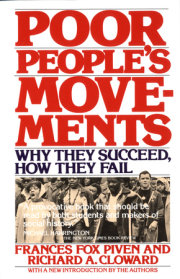1. Relief, Labor, and Civil Disorder: An Overview
Part I: Relief and the Great Depression
2. Economic Collapse, Mass Unemployment, and the Rise of Disorder
3. The New Deal and Relief
Part II: Relief and the Years of Stability: 1940–1960
4. Enforcing Low-Wage Work: Statutory Methods
5. Enforcing Low Wage Work: Administrative Methods
Part III: Relief and the Urban Crisis
6. The Welfare Explosion of the 1960s
7. Agricultural Modernization and Mass Unemployment
8. Migration and the Rise of Disorder in the Cities
9. The Great Society and Relief: Federal Intervention
10. The Great Society: Local Consequences
Part IV: Relief, Deindustrialization, and the War Against Labor: 1970–1990
11. Poor Relief and the Dramaturgy of Work
12. Poor Relief and Theories of the Welfare State







